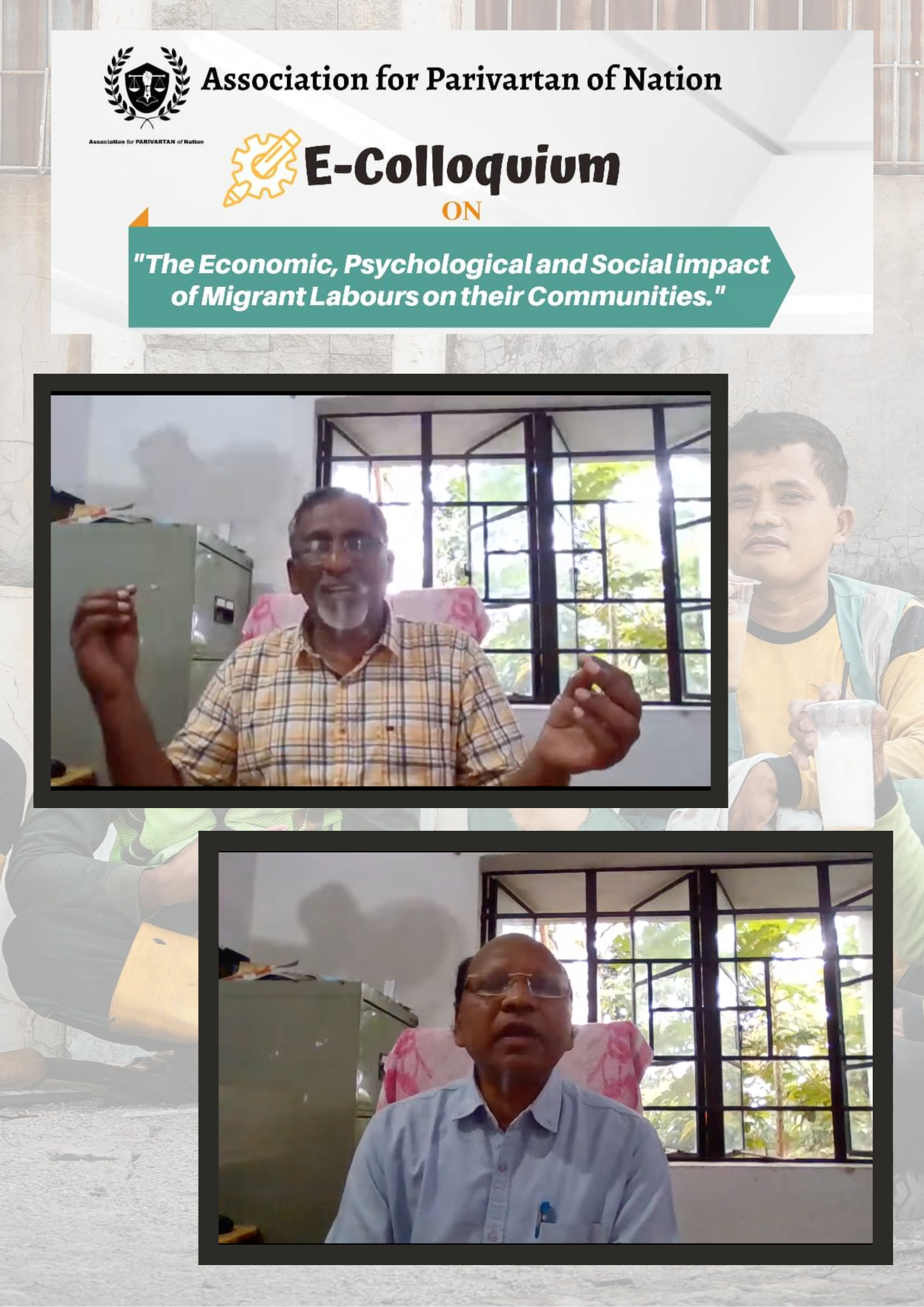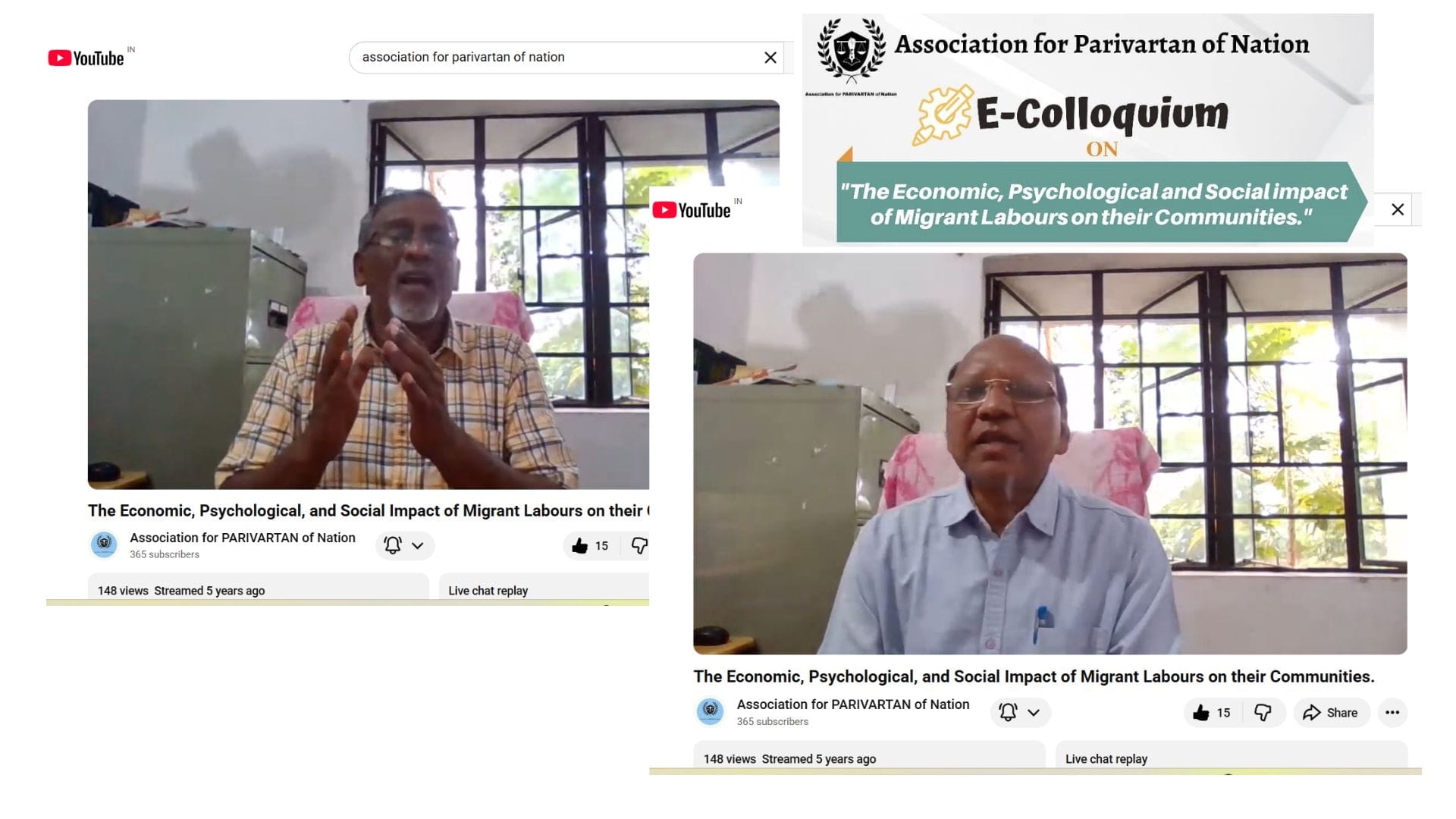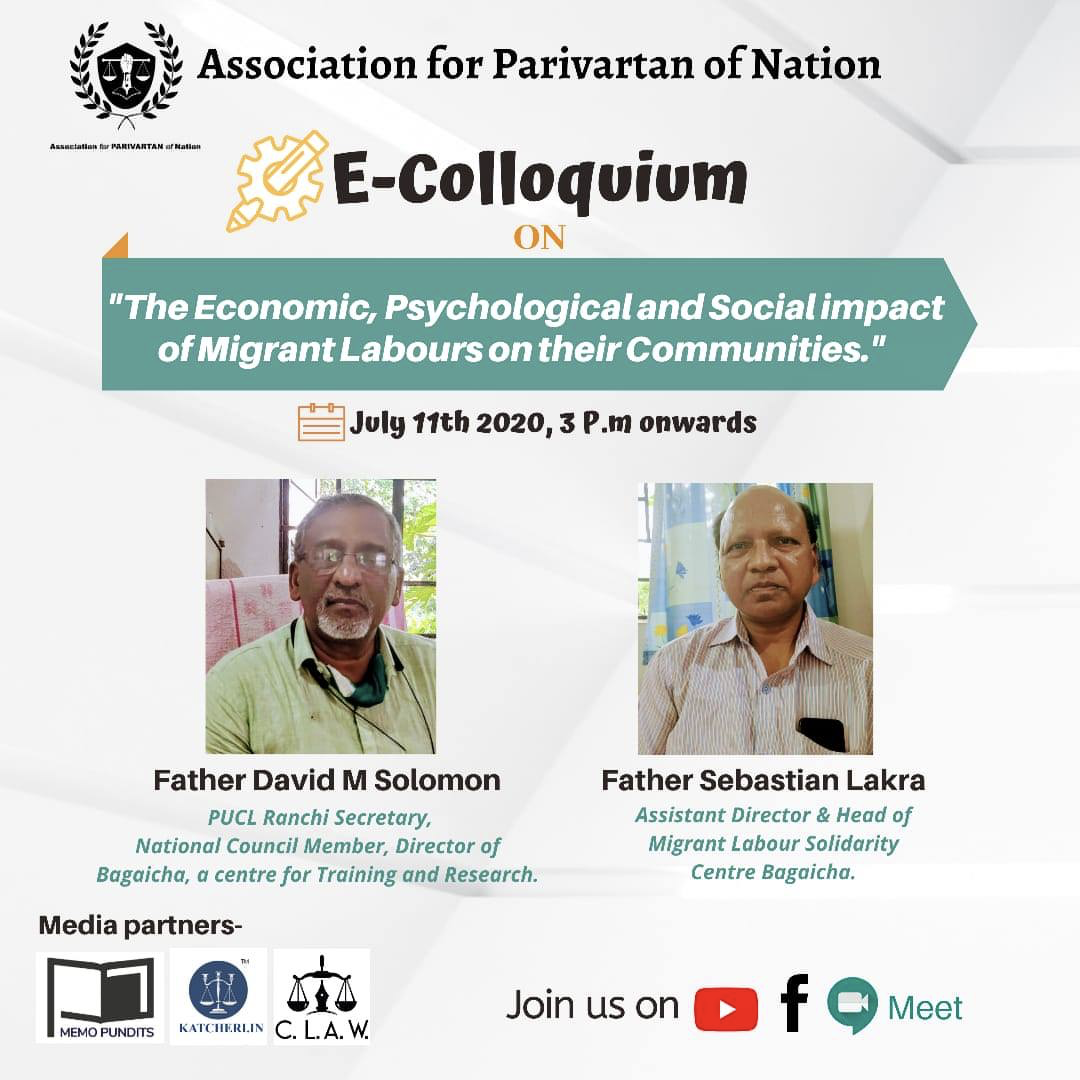E-colloquium on The Economic, Psychological and Social Impact of Migrant Labourers on Their Communities
On 11 July 2020, APNA’s E-Colloquium on migrant workers’ economic, social & psychological impact drew 700 participants. Speakers highlighted reverse migration, wage denial & state neglect. With 200+ live questions, the session ended by urging labour reforms for security, dignity & fair wages.

Voices from the Margins: Re-centring the Migrant Worker in Policy and Practice
On 11th July 2020, APNA organised a powerful E-Colloquium on “The Economic, Psychological and Social Impact of Migrant Labourers on Their Communities”. The event, held at the height of India’s migrant crisis triggered by the COVID-19 lockdown, brought together nearly 700 participants from across the country. Attendees joined via Google Meet, APNA’s official YouTube channel, and Facebook Live, reflecting the urgency and relevance of the issue at hand.
The discussion was led by two eminent speakers, Father David M. Solomon and Father Sebastian Kalra, both Jesuit priests with extensive experience working among tribal and migrant communities in Central India. Father Sebastian Kalra, who serves as the Assistant Director and Head of the Migrant Labour Solidarity Centre at Bagaicha, opened the conversation by drawing attention to the phenomenon of reverse migration. He noted how millions of workers, who once travelled to Southern states for work in construction and agriculture, were suddenly forced back to their villages due to crumbling urban livelihoods. “The lack of accurate and consolidated data is itself evidence of the State’s neglect,” he remarked, pointing to the fragmented statistics that made effective planning nearly impossible. He went on to explain that migration from Central India to the South has long been driven by economic and socio-cultural factors, but the pandemic exposed the deep vulnerabilities of these workers.
“Healthy wages, safe working conditions, and dignity remain distant promises for most migrant workers,” he emphasised.
Father David Solomon, currently the Director of Bagaicha Centre for Training and Research and Secretary of PUCL Ranchi, brought in the emotional and humanitarian perspective. He recounted harrowing stories of migrant families forced to walk hundreds of kilometres in searing heat, many of them without food or water. “We must not reduce these labourers to mere figures in a report. They are human beings, with hopes, fears, and dignity,” he said firmly. He criticised the State’s failure to provide even the most basic sustenance, which pushed countless families into perilous journeys home. He also shed light on the discrimination faced by migrants in workplaces, where their social backgrounds often subjected them to exploitative conditions and unequal treatment.

The session lasted over an hour and generated more than 200 live questions and comments from participants. Many shared personal experiences of seeing migrant families walk past their towns and villages during the lockdown. Nidhi Suman, A student participant from Ranchi, commented, “Listening to these stories, I realise how little I understood the struggles of those who built our cities. It makes me want to act.” The session concluded with a call for robust labour policies to protect those in the informal sector from sudden shocks like the pandemic. Both speakers emphasised the need for long-term reforms that guarantee social security, fair wages, and legal safeguards against abuse.

